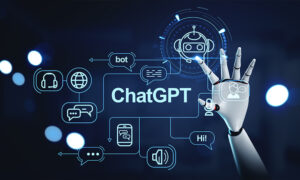
At AXIOMA, we have decided to conduct regular brainstorming sessions on how AI can change our future and impact our lives. During one of our recent sessions, we discussed the possibility that all people will have personal AI assistants in the near future. These assistants would be designed to understand their owner’s context, including their health, education and knowledge, work, habits, and more.
We explored the various use cases, benefits, and challenges associated with the development of such personal AI assistants. Additionally, we emphasized the need for standardization and ethical use of these technologies, ensuring that they are designed to benefit humanity and do not pose any risks or threats to our privacy or security. In this article, we will delve deeper into the key thoughts and considerations surrounding the development of personal AI assistants and how they might look in the future.
Personal assistants powered by AI could handle daily routine tasks, such as scheduling appointments, making phone calls, and sending emails, shopping, and many others, leaving the user with more time to focus on other things. People would no longer have to remember everything.
One of the most remarkable aspects of AI is its ability to adapt very precisely to its owner’s context. This means that all recommendations provided by a personal AI assistant will be strictly individualized and in the user’s best interest. Today, there is an abundance of information, recommendations, and answers to questions available online. However, all of them are aimed at a general audience, and the authors published the content online to promote their own interests (such as selling something or convincing someone to adopt a particular viewpoint). In contrast, AI assistants can take into account the specific context of its owner and provide more relevant responses.

To support the development of personal AI assistants, a complex infrastructure is required. This infrastructure must include functional components such as:
Personal AI assistants have the potential to revolutionize the way we interact with technology and each other. While the possibilities are vast, it is important to consider the ethical use and standardization of personal AI assistants. As with any new technology, it will be important to approach personal assistants powered by AI with a thoughtful and cautious approach, considering the potential benefits and risks before fully embracing them.
One concern is that people may lose motivation to develop their own skills and knowledge if they rely too heavily on their personal assistant. It is important to strike a balance between relying on technology and continuing to develop one’s own abilities.
Personal assistants powered by AI could facilitate communication between family members, colleagues, and friends, offering new ways to stay connected. Yet, there are risks to consider such as the potential for miscommunication or exacerbating existing communication problems.
A critical consideration for personal AI assistants is data privacy and security. As these assistants collect and store personal data, it is essential that users trust that their information is being kept safe. This includes ensuring that data is encrypted and secure in the cloud, and that users have control over the data that is collected and shared. Additionally, privacy and security considerations should extend to the interfaces used by the assistants, ensuring that users’ interactions with the assistants are also secure and private.
How to Ensure Success for Personal AI Assistants
To ensure the success of personal AI assistants, several key factors must be considered.
By addressing these key factors, personal AI assistants can be developed in a way that optimizes their potential to improve our daily lives while minimizing potential risks

CMO
Share:





